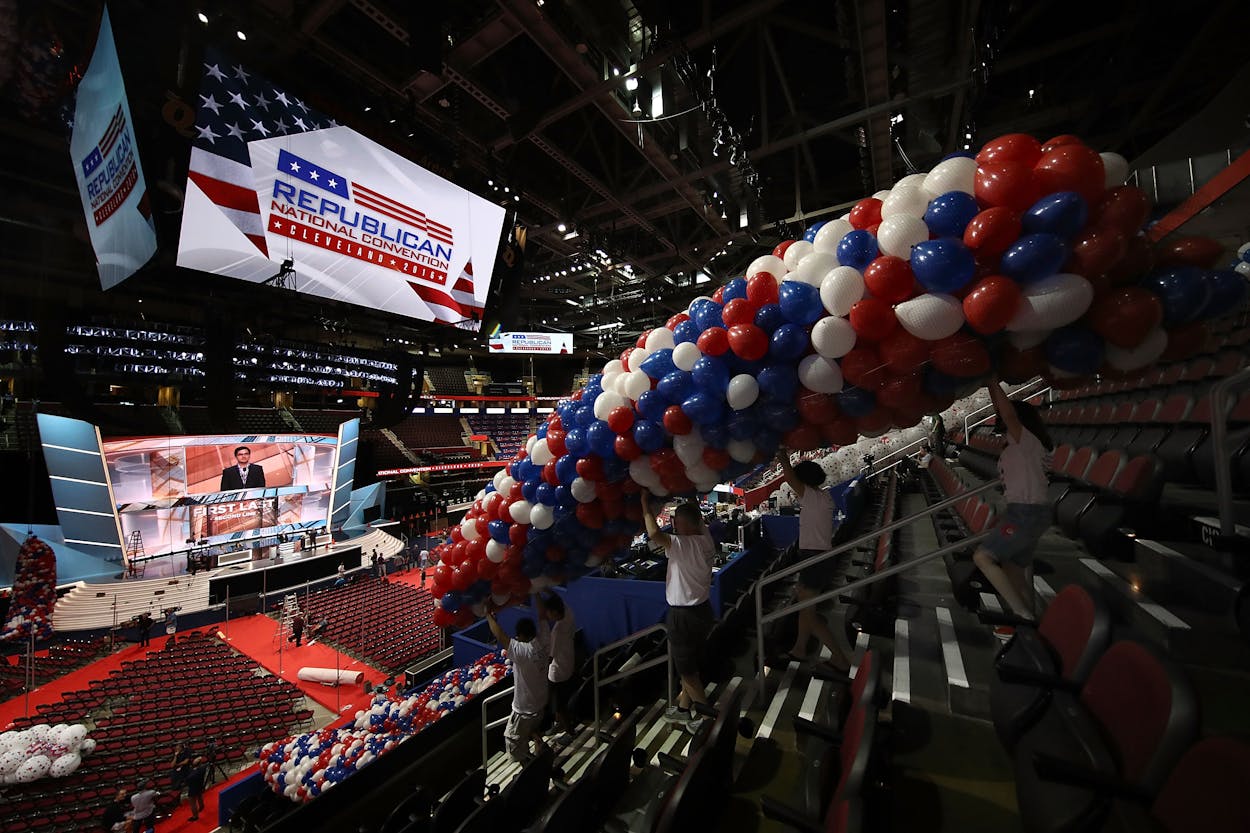There are some uncertainties hanging over this year’s Republican National Convention, which officially kicks off Monday in Cleveland. But yesterday brought clarity on several details related to Donald Trump, the party’s presumptive presidential nominee. His campaign released a list of speakers, many of whom are—no pun intended—unconventional. It was widely reported that he had chosen Indiana Governor Mike Pence to be his running mate. (And after telling a Fox News host last night that he hadn’t quite made up his mind, he confirmed this morning that he had picked Pence.)
But the most revealing news came late on Thursday, when Trump’s campaign, in conjunction with RNC officials, throttled the last-ditch effort of the anti-Trump movement within the party. Trump’s opponents had mounted a small mutiny on the Rules Committee, which convened yesterday to vote on the rules that will govern the convention. A handful of members had proposed a change that would have “freed the delegates” from the pledges that, under the rules of the respective state parties, bind most of them to voting to nominate Trump next week. The hope, of course, was that if delegates were free to vote for whomever they wanted, then someone else might swipe the nomination. But that hope is now gone. When the Rules Committee voted down the proposal by an overwhelming margin, it effectively ensured that Trump will be the Republican presidential nominee.
What’s worth keeping in mind, however, is that we already knew that. The effort to “Dump Trump,” as it’s been summarized on social media, was unlikely to succeed at this late stage. Early on Thursday, rebels were confident that they could muster enough support on the Rules Committee to bring a “minority report” on their proposal to a floor vote on the convention’s first day. There was no guarantee that they would have won a floor vote. And there was no reason to think that the delegates, if freed, would have come up with an alternative to Trump. The anti-Trump faction hadn’t coalesced around an alternative candidate, or even confirmed that any of the people they’ve proposed were willing to volunteer for a last-minute presidential campaign. But despite the long odds, the anti-Trump delegates on the Rules Committee made the effort. And they’re clearly not the only conservatives dissatisfied with their options in the general election; one recent poll that found a majority of Republicans would prefer someone else as their party’s presidential nominee. Most of those Republicans may eventually vote for Trump. Some, however, will not. It’s too soon to be sure how many defectors there will be in November. In the meantime Trump, and the GOP officials calling for unity, are free to assert that the defections will be negligible, and that may prove to be the case. But in the absence of evidence for that assertion, complacency would be unwise.
I’ll be in Cleveland next week to cover the convention, so readers of BurkaBlog can expect regular dispatches. I’m not expecting major surprises. For example, I see no reason to think that Ted Cruz, who has yet to endorse Trump, will change his tune. The fact that he is speaking at the convention raised speculation that he might, but it is the Republican National Convention, not some kind of ball being given in Trump’s honor. And Cruz is the only candidate other than Trump who won more than eight states during this year’s primary; under the RNC rules, that means he’s qualified to be nominated from the floor and therefore, at least in theory, to speak. It makes sense that he would do so; despite being defeated in his first bid for the presidential nomination, he is pretty obviously interested in laying the groundwork for the next one. Beyond that, since Cruz and all the other candidates were defeated by Trump, we know exactly what to expect from the Republican National Convention. There will be an abundance of indiscriminate vitriol, and an absence of substance. It will be a week of the debased political discourse that Trump has inflicted on America for more than a year, as he will continue to do until November—as the presidential nominee of the Republican Party, after the delegates pledged to vote in his favor do so, regardless of what they actually want.







